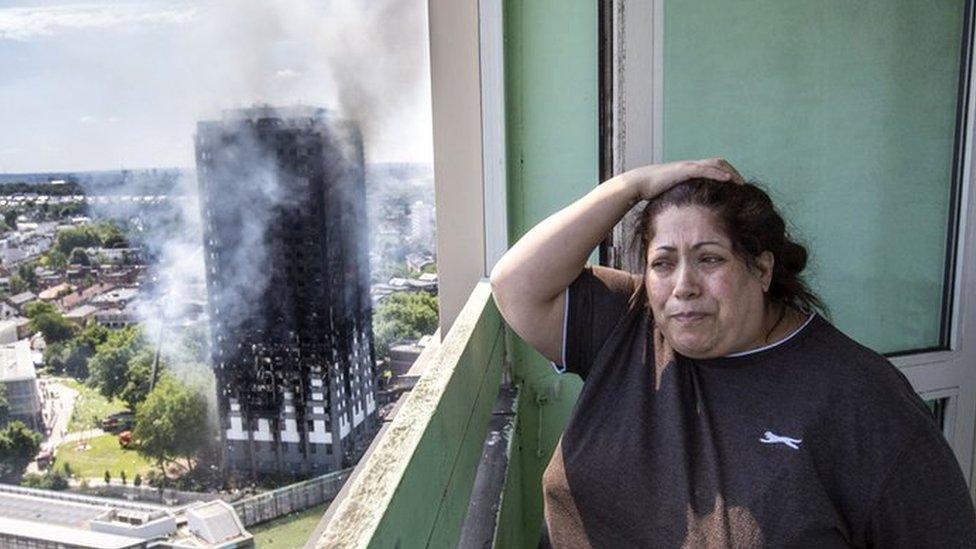Tower block residents across England given safety advice
- Published
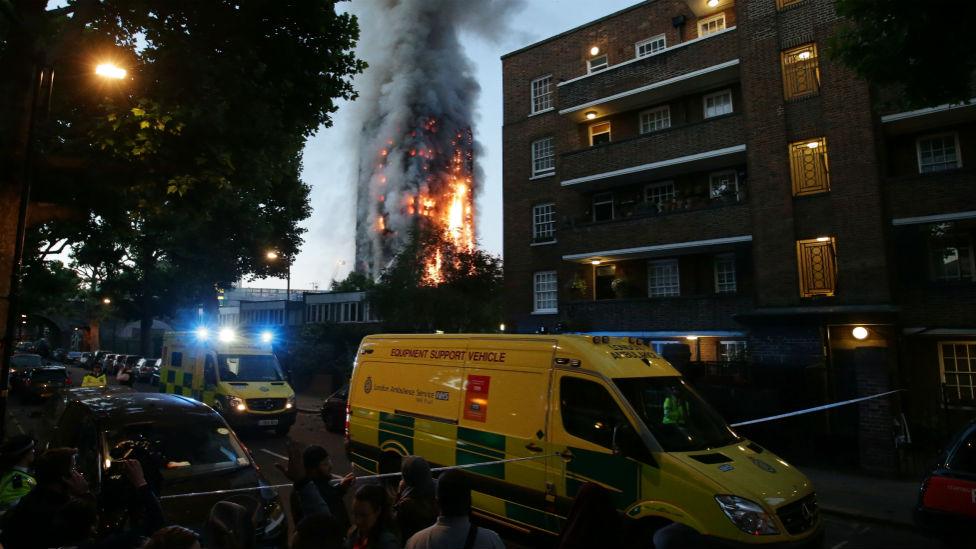
Following the fatal tower block blaze in London, people living in high-rise buildings across England are being given safety advice.
Most housing associations and councils have issued statements to say their accommodation complies with regulations and is safe.
Some fire brigades have described their high-rise training facilities.
The authorities have also expressed sorrow over the deaths at Grenfell Tower in north Kensington.
Many, including Greater Manchester Fire and Rescue Service, pointed out that serious fires are extremely rare.
The law requires the owners or managers of high-rise buildings to make sure appropriate fire precautions are in place to safeguard people living or working there.
This may include the fitting of sprinklers, rising mains, ventilation and fire alarm systems.
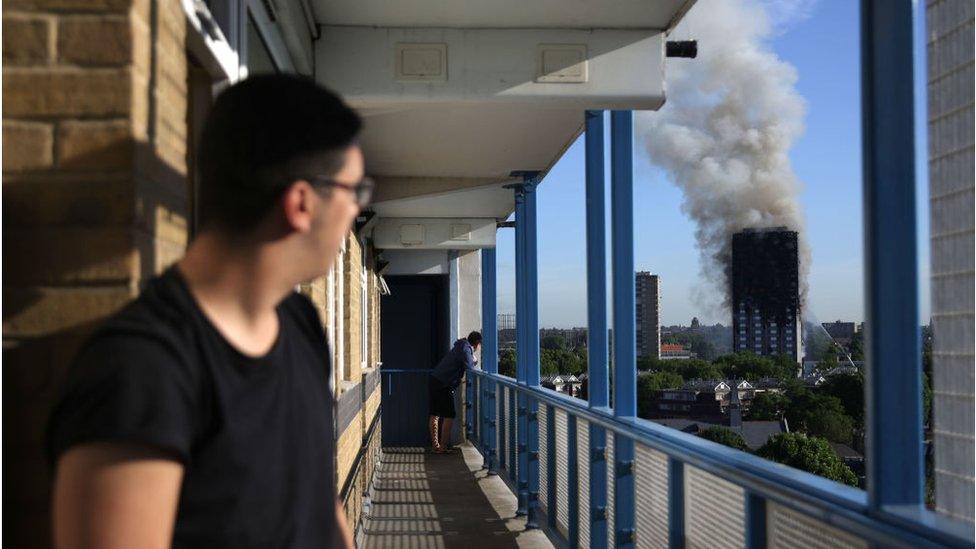
Kent Fire and Rescue Service and London Fire Brigade were two of those which also published safety advice, external for people living in tower blocks.
A number of local authority landlords highlighted recent improvements and extra safety measures.
Sandwell Council said all of its blocks have automatic smoke ventilation systems, bin room sprinkler systems, bin chute cut-off slides and dry risers - pipes used by the fire service to distribute water to multiple levels of a building.
Oxford City Council said it was carrying out renovations that "have delivered substantial improvements" to fire safety.
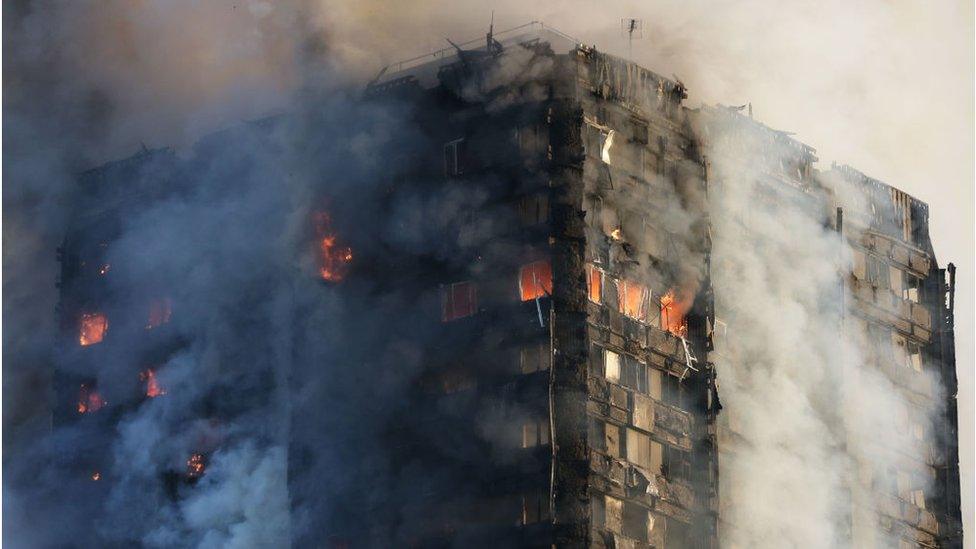

Safety advice
Make sure you have a working smoke alarm and test it every week
Prepare a plan of action in case of emergency
Keep escape routes clear
Familiarise yourself with the building's evacuation procedure
If you live in a purpose-built flat or maisonette, you are usually safer staying in your own home unless the heat or smoke is affecting you. A self-contained, purpose-built flat or maisonette will typically give you between 30 and 60 minutes protection from fire
If you live in a building that has been converted in to flats, check with your landlord about the procedure
Use the stairs, never a lift
Never park so you block access to high-rise flats. Access roads are designed so that fire engines can get as close as possible to fight fires
Don't start cooking if you are very tired or have consumed a lot of alcohol
If you smoke, make sure you put your cigarettes out properly, and don't smoke in bed
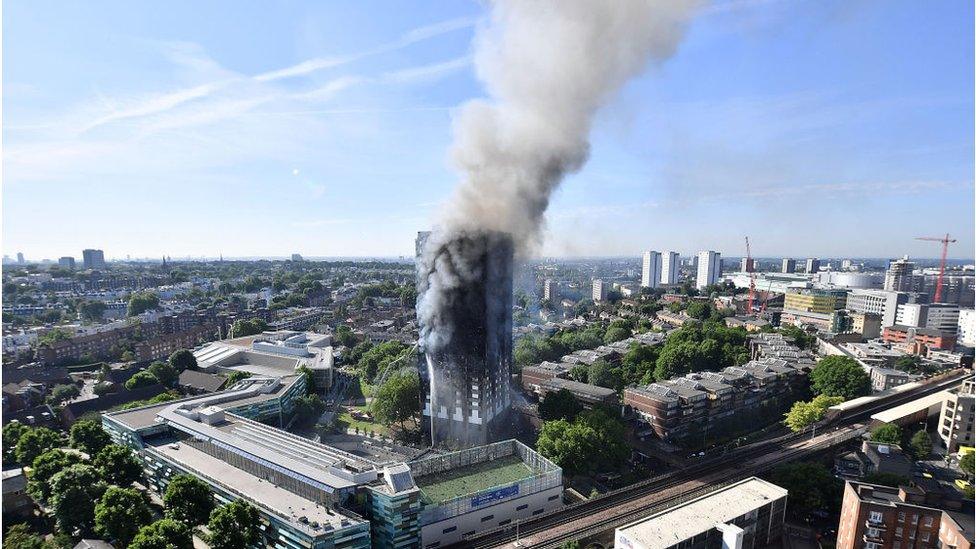
Fortis Living, which looks after Worcestershire's buildings, said upgrade work has been done, which includes firebreaks on every floor. Magenta Living, which does the same in Birkenhead, Merseyside, said its high-rise blocks "undergo an annual, independently carried out, fire safety risk assessment".
Nottingham's housing association said it was "confident the systems are robust".
Brighton and Hove City Council said it will review fire safety in council-owned housing stock, and there are already plans for two further sprinkler systems to be installed.
Salix Homes in Salford said all its high-rise blocks comply with regulations, but "following the tragic incident in London, we will now be working with Greater Manchester Fire and Rescue Service and Greater Manchester Housing Providers to look at any lessons that can be learnt" and Hull City Council said similar.
Both Cheshire and West Midlands Fire and Rescue Services emphasised their training programmes.
The West Midlands service has a special facility in Oldbury where floors can be configured in a range of different ways, there are internal and external staircases and a lift shaft. Instructors use it to set fires in condition where they can vary ventilation, wind speed and the internal movement of smoke and fire gases.
- Published14 June 2017
